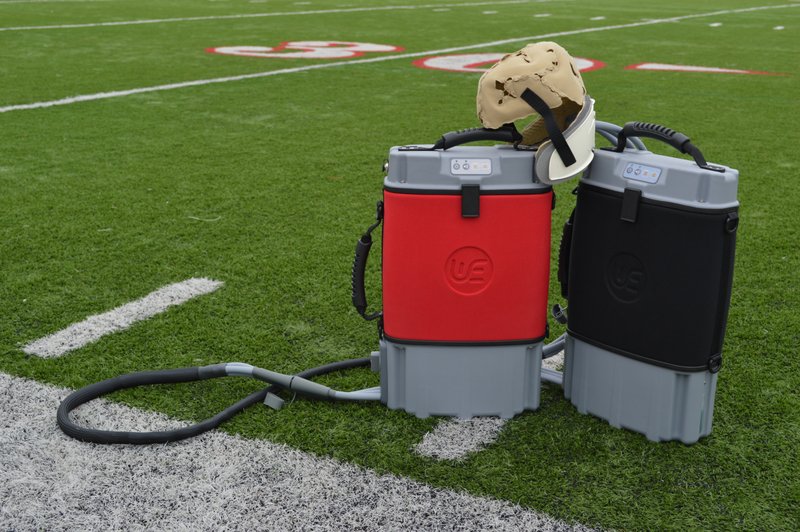|
Penn State to utilize WElkins' brain cooling technology to explore "revolutionary step" in the treatment and prevention of sports-related concussions WElkins, LLC is excited to share Penn State's announcement today of a groundbreaking new research program into the effects of brain cooling on sports-related concussion. The Principal Investigator, Semyon Slobounov -- Professor of Kinesiology and Director of the Penn State Center for Sport Concussion Research and Service -- studies sports-related traumatic brain injuries using advanced virtual reality and brain imaging tools. Now, with support from WElkins and Spartan Medical, he is determined to learn what more can be done about a problem that continues to arise in athletes of all ages, despite advanced testing and updated regulations and protocols.
Penn State researchers will use WElkins' temperature management system, which applies cooling to the scalp and the back of the neck, to examine the effect of cooling on neurocognitive, balance and executive functions. "Our hypothesis is that cooling the brain will modulate clinical symptom resolution in the acute phase of injury," Slobounov says. "Our hypothesis is that cooling the brain will modulate clinical symptom resolution in the acute phase of injury," Slobounov says. "We will reduce brain temperature by applying a cooling helmet to the scalp and then test its effect using both the control group and concussed Penn State student-athletes." He plans to observe any changes directly via MRI and electroencephalography, which measures the brain electrical activity along the scalp. Adds Slobounov: "We also hypothesize that there will be a beneficial effect of cooling in concussed athletes suffering from residual cognitive and balance dysfunctions far beyond the acute phase of injury." Induced hypothermia has been studied for more than 50 years as a treatment for brain injury. Researchers have looked at both whole body and head-and-neck-only cooling applications. "The higher the temperature of the brain, the more susceptible it is to injury," Slobounov explains. After concussive injury, the immediate goal is to reduce the metabolic crisis in the brain. "This study is important because concussive injury is a silent epidemic," Slobounov said. "Brain injury is not always easy to identify, and symptoms vary by individual." Brain damage also doesn't always occur immediately after injury. As a result, many athletes who are injured during a game or competition may continue performing, furthering the damage. "This treatment may play a significant role in reducing and/or potentially preventing that further damage," Slobounov said. "This is a very promising tool. We are encouraged that it will be a revolutionary step in management of concussive injuries." Co-investigators for this project include Tim Bream, head of athletic training services, and Peter Seidenberg, team physician, both of Penn State's Departments of Athletics and Athletic Medicine. Specifically, Bream and Seidenberg will be involved with recruitment, medical screening, and data analysis of Penn State student athletes. WElkins and Spartan are funding this study, along with funds and other support from the Office of Vice President for Research, College of Health and Human Development, Department of Kinesiology, SSRI, SLAIC and Department of Athletics. Partners include the National Institutes of Health and Dr. Mark Hallett, senior investigator at the National Institute of Neurological Disorders and Stroke. To read the Penn State announcement and learn more about the study, please visit: news.psu.edu/story/347428/2015/03/05/research/tip-iceberg-concussion-treatment For more information about the Penn State Center for Sport Concussion Research and Service, please visit concussion.psu.edu
Comments are closed.
|


 RSS Feed
RSS Feed
